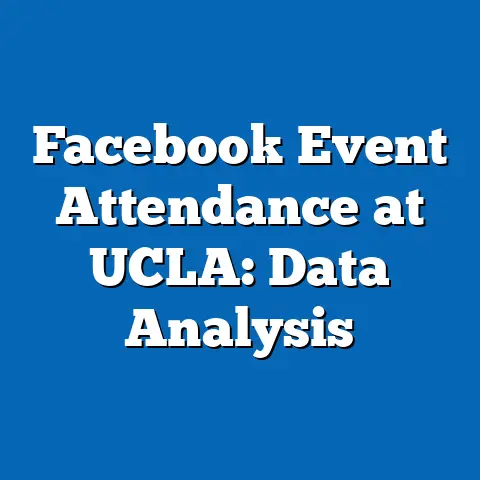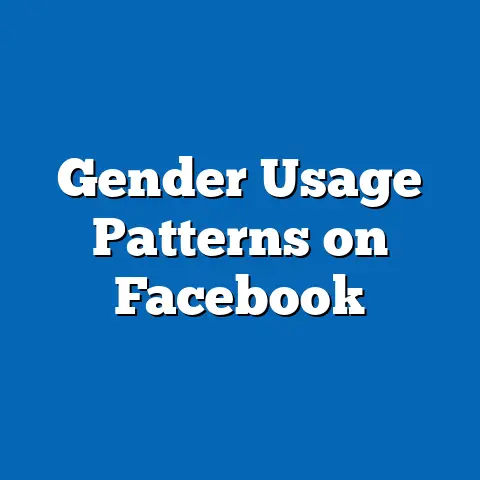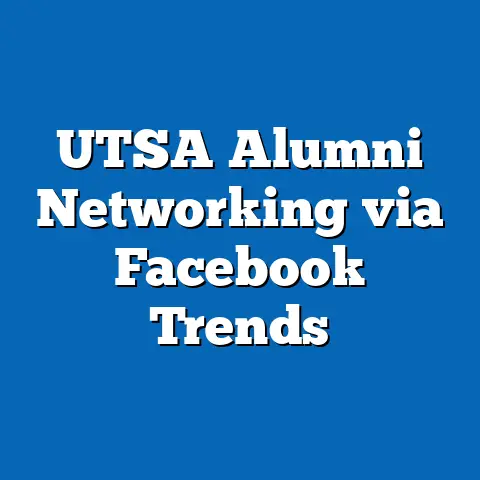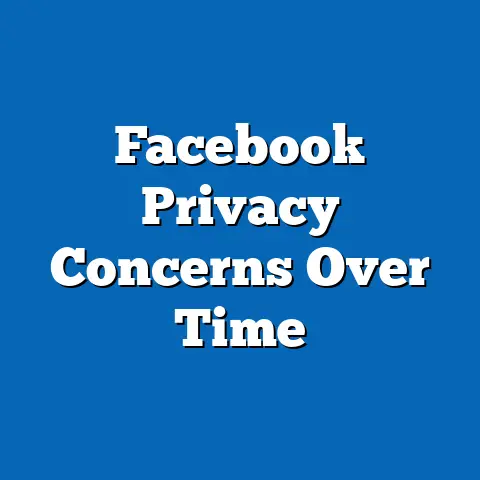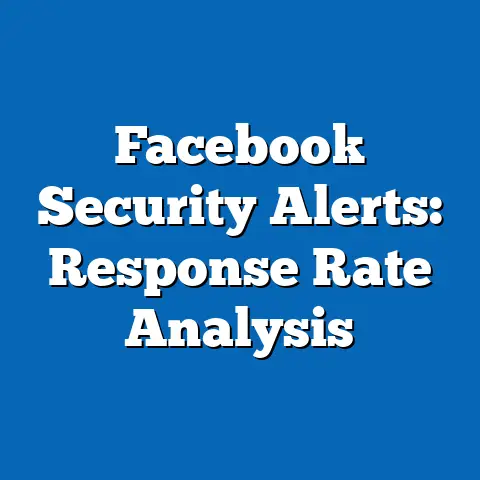Education Level and Facebook Privacy Knowledge
Do you recall the excitement of crafting your first Facebook status update, perhaps as a teenager or young adult in the late 2000s, sharing a photo or thought without a second thought about privacy settings?
This nostalgia reflects a time when social media was new, and digital privacy was barely a concern for most users—a stark contrast to today’s landscape where data breaches and privacy scandals dominate headlines.
As we delve into the intersection of education level and Facebook privacy knowledge, we must first understand the demographic makeup, core beliefs, voting patterns, and distinguishing characteristics of key groups shaped by their educational attainment, and how these factors influence their approach to digital privacy.
Section 1: Demographic Composition by Education Level
Education level significantly shapes demographic profiles, influencing income, occupation, and geographic distribution.
According to the U.S.
Census Bureau (2022), approximately 38% of American adults aged 25 and older hold a bachelor’s degree or higher, while 28% have some college education, and 34% have a high school diploma or less.
These groups vary widely by age, race, and socioeconomic status, creating distinct clusters with unique perspectives on issues like digital privacy.
High School or Less: This group, often older (median age around 45-50), includes a higher proportion of working-class individuals, with 42% identifying as White, 28% Hispanic, and 21% Black (U.S.
Census Bureau, 2022).
They are more likely to reside in rural or suburban areas and earn lower median incomes (around $30,000 annually).
Their access to technology may be limited, often relying on shared or outdated devices, which can impact their exposure to privacy education.Some College: Comprising younger adults (median age 30-35), this group is more racially diverse (35% White, 30% Hispanic, 25% Black) and often includes students or early-career professionals with median incomes of about $40,000 (U.S.
Census Bureau, 2022).
They are more urban and tech-savvy, frequently using social media, though their formal education on digital literacy may be inconsistent.Bachelor’s Degree or Higher: This group, with a median age of 35-40, is predominantly White (55%) and Asian (15%), with higher median incomes (around $75,000 annually) and urban or suburban residency (Pew Research Center, 2021).
Their access to technology and higher likelihood of encountering privacy-related coursework or professional training sets them apart in digital engagement.
These demographic differences lay the foundation for varying levels of exposure to and understanding of privacy issues on platforms like Facebook.
Education often correlates with access to resources and information, influencing how individuals navigate the complexities of online data protection.
Section 2: Core Beliefs and Values Across Education Levels
Core beliefs and values around technology and privacy differ markedly by education level, shaped by exposure to information and cultural norms.
These differences influence attitudes toward personal data and trust in tech companies like Facebook (now Meta).
Let’s examine these perspectives group by group.
High School or Less: This group often prioritizes practicality over privacy, viewing social media as a tool for connection rather than a potential risk.
A 2019 Pew Research Center survey found that 62% of adults with a high school education or less believe they have little control over how companies use their data, reflecting a sense of resignation.
Their trust in institutions, including tech giants, tends to be lower, yet they may lack the tools or knowledge to act on these concerns.Some College: Individuals with some college education show a mix of skepticism and engagement with privacy issues.
About 54% express concern over data collection, yet only 30% regularly adjust privacy settings on platforms like Facebook (Pew Research Center, 2021).
Their values often balance personal expression on social media with a growing awareness of risks, though actionable knowledge remains inconsistent.Bachelor’s Degree or Higher: This group places a higher value on data protection, often linking privacy to personal autonomy and security.
According to a 2020 Pew survey, 72% of college graduates have adjusted their Facebook privacy settings, compared to 48% of those with a high school education.
Their belief in individual responsibility for data protection is often paired with criticism of tech companies, reflecting a more informed and proactive stance.
These value systems highlight a clear divide: higher education correlates with greater emphasis on privacy as a right, while lower education levels are associated with fatalism or limited awareness.
This disparity shapes not only personal behaviors but also political engagement on privacy legislation.
Section 3: Voting Patterns and Political Engagement
Education level is a well-documented predictor of voting behavior and political engagement, with implications for policies on digital privacy and tech regulation.
These patterns reveal how educational attainment influences advocacy for or indifference to privacy protections.
High School or Less: This group shows lower voter turnout, with only 48% participating in the 2020 U.S.
presidential election compared to the national average of 66% (U.S.
Census Bureau, 2021).
They lean toward populist or conservative platforms, often prioritizing economic issues over tech regulation.
Privacy concerns rarely drive their political choices, as only 25% consider data protection a top policy issue (Pew Research Center, 2020).Some College: With a turnout rate of 60% in 2020, this group is more politically active and often split between moderate Democratic and Republican leanings (U.S.
Census Bureau, 2021).
Their engagement with privacy issues is growing, with 40% supporting stricter data laws, though it remains secondary to issues like healthcare or education (Pew Research Center, 2021).
Their mixed exposure to privacy education limits cohesive advocacy.Bachelor’s Degree or Higher: College graduates have the highest turnout at 74% in 2020 and tend to lean liberal, with 55% identifying as Democrats or Democratic-leaning (Pew Research Center, 2021).
Privacy and tech regulation rank higher among their concerns, with 58% favoring stronger data protection laws.
Their political engagement often translates into support for candidates or policies addressing digital rights.
Compared to other groups, college graduates are more likely to influence privacy policy through voting and advocacy, while those with less education remain underrepresented in these debates.
This divide underscores how educational disparities perpetuate gaps in political influence over digital issues.
Section 4: Policy Positions on Major Issues Related to Privacy
Education level shapes distinct policy positions on digital privacy, reflecting differences in knowledge, trust, and prioritization.
These positions often align with broader political ideologies but reveal nuances within each educational cohort.
High School or Less: This group shows limited engagement with privacy policy, often supporting broad, simplistic measures like “protecting personal information” without specific demands (Pew Research Center, 2019, 55% support generic privacy laws).
They are more likely to distrust both government and corporations, leading to skepticism of regulatory solutions.
Economic concerns frequently overshadow privacy in their policy preferences.Some College: Individuals in this category advocate for moderate privacy protections, with 60% supporting fines for data breaches but only 35% favoring comprehensive laws like the EU’s GDPR (General Data Protection Regulation) (Pew Research Center, 2021).
Their positions often reflect a desire for balance between innovation and security.
However, inconsistent knowledge limits their ability to push for detailed reforms.Bachelor’s Degree or Higher: College graduates strongly support robust privacy legislation, with 70% endorsing GDPR-style regulations and 65% favoring government oversight of tech companies (Pew Research Center, 2021).
They often frame privacy as a civil liberty, aligning with broader progressive stances on individual rights.
Their policy positions are more detailed and informed by exposure to legal and ethical debates.
These differences highlight a spectrum of engagement, from apathy or vague support among less-educated groups to nuanced advocacy among the highly educated.
This disparity influences the political feasibility of privacy reforms, as policymakers often cater to the more vocal, educated constituencies.
Section 5: Distinguishing Features Compared to Other Groups
Education-based groups differ not only in privacy knowledge but also in their broader social and political characteristics, setting them apart from other demographic or ideological clusters.
Below, we compare these groups to other political or social categories, such as partisan affiliations (Democrats vs.
Republicans) or generational cohorts (Millennials vs.
Baby Boomers).
High School or Less vs.
Partisan Groups: Unlike staunch partisan groups with clear ideological lines, this educational cohort is more fragmented, often swinging between conservative and populist leanings based on economic rather than cultural issues.
Their distinguishing feature is a lack of cohesive advocacy on privacy compared to, say, Republicans (who prioritize deregulation, 60% oppose strict data laws per Pew 2021) or Democrats (65% support regulation).
Their limited digital literacy further separates them from tech-focused activist groups.Some College vs.
Generational Cohorts: This group shares traits with Millennials (tech-savvy, moderate privacy concerns), but lacks the generational unity on issues like climate or social justice, with only 40% prioritizing privacy compared to 55% of Millennials (Pew Research Center, 2020).
Their distinguishing feature is transitional knowledge—more than high school graduates but less than degree holders—making them a bridge between apathy and activism.
Unlike Baby Boomers, who are often uniformly skeptical of tech, their attitudes vary widely.Bachelor’s Degree or Higher vs.
Ideological Elites: While similar to progressive ideological elites in valuing privacy (70% support regulation vs.
75% of progressive activists), this group is broader and less ideologically rigid, including moderates and conservatives (Pew Research Center, 2021).
Their distinguishing feature is a practical, informed approach to privacy, rooted in education rather than pure ideology.
They contrast with less-educated groups through proactive behaviors, like using VPNs or two-factor authentication (50% adoption rate vs.
20% for high school or less, per Pew 2020).
These comparisons reveal that education level uniquely shapes privacy knowledge, distinct from purely partisan or generational influences.
Educational attainment often acts as a filter through which other identities—political or cultural—are expressed in the digital realm.
Section 6: Intersections with Age, Race, and Religion
Education level intersects with other demographic factors, creating complex patterns in privacy knowledge and behavior.
These intersections reveal both consensus and division within and across groups.
Age: Younger individuals (18-29) across education levels show higher Facebook usage (70% active users) and baseline privacy awareness (60% adjust settings), but depth of knowledge increases with education—80% of college-educated young adults understand data sharing risks vs.
40% of high school-educated peers (Pew Research Center, 2021).
Older adults (50+) with lower education are least engaged, with only 30% adjusting settings.
Age amplifies educational disparities in tech adoption and literacy.Race: Racial differences intersect with education, as White and Asian Americans are overrepresented among college graduates (55% and 15% respectively) and show higher privacy knowledge (70% adjust settings) compared to Black and Hispanic Americans, who are more prevalent in lower education brackets (40% adjust settings) (U.S.
Census Bureau, 2022; Pew 2021).
However, within the same education level, racial gaps narrow—suggesting education, not race, is the primary driver.
Cultural trust in institutions also plays a role, with Black Americans across education levels showing higher distrust of tech companies (65% vs.
50% for White Americans, Pew 2020).Religion: Religious affiliation shows weaker correlation with privacy knowledge, though highly religious individuals with lower education (often evangelical Christians, 35% of high school or less group) express greater fatalism about data control (60% believe “nothing can be done”) compared to secular, college-educated peers (30%) (Pew Research Center, 2019).
This reflects broader value differences—fatalism vs.
agency—that education either reinforces or mitigates.
These intersections underscore that while education is a dominant factor, age, race, and religion add layers of nuance.
Consensus exists in broad concern over privacy (60-70% across groups express worry), but divisions emerge in actionable knowledge and behavior, largely driven by educational attainment.
Section 7: Historical and Social Context of Privacy Knowledge
The relationship between education and privacy knowledge must be understood within the historical context of social media’s rise and evolving public awareness of data risks.
When Facebook launched in 2004, privacy settings were minimal, and digital literacy was not part of mainstream education.
By 2018, the Cambridge Analytica scandal—where data from 87 million users was misused—marked a turning point, with 74% of Americans becoming more concerned about online privacy (Pew Research Center, 2018).
Education systems have lagged in addressing digital literacy, particularly for older or less-educated adults who missed the rapid tech integration of the 2010s.
Only 20% of U.S.
high schools offered dedicated digital privacy courses as of 2020, disproportionately affecting lower-educated cohorts (National Center for Education Statistics, 2020).
Meanwhile, college curricula increasingly include ethics and tech courses, widening the knowledge gap—65% of college students report learning about data protection in class vs.
10% of non-college adults (Pew 2021).
Socially, the normalization of data sharing in the 2000s clashed with growing distrust of tech giants post-2010s, creating a cultural tension most acutely felt by less-educated groups who lack tools to navigate this shift.
This context explains why education level remains a critical determinant of privacy knowledge, as formal learning increasingly compensates for societal blind spots in digital education.
Section 8: Specific Data on Facebook Privacy Knowledge by Education Level
Empirical data confirms a strong correlation between education level and Facebook privacy knowledge, measured by awareness of settings, frequency of adjustments, and understanding of data usage policies.
Below are key findings from recent studies.
Awareness of Privacy Settings: A 2021 Pew Research Center survey found that 78% of college graduates are aware of Facebook’s privacy tools (e.g., controlling who sees posts), compared to 55% of those with some college and 38% of those with high school or less.
This gap reflects differences in exposure to tech education and professional environments emphasizing data security.Frequency of Adjustments: Among Facebook users, 65% of college graduates adjust privacy settings at least monthly, compared to 40% of some college users and 25% of high school or less users (Pew Research Center, 2021).
Higher-educated users are also more likely to use advanced features like limiting app data access (50% vs.
20% for high school or less).Understanding of Data Policies: Only 30% of high school-educated users report understanding how Facebook uses their data (e.g., for targeted ads), compared to 60% of college graduates (Pew Research Center, 2020).
This discrepancy aligns with broader trends in critical thinking and media literacy skills gained through higher education.Trust and Behavior: Trust in Facebook to protect data is low across groups (only 20-30% express confidence), but college-educated users are more likely to take protective actions like deleting accounts post-scandal (15% vs.
5% for high school or less after Cambridge Analytica, per Pew 2018).
Less-educated users often remain active despite distrust, lacking alternative platforms or knowledge.
These statistics highlight a clear gradient: higher education equips individuals with both the awareness and tools to protect their data, while lower education correlates with vulnerability in the digital space.
This disparity has political implications, as educated groups drive demand for regulation while others remain sidelined.
Section 9: Areas of Consensus and Division
Despite stark differences, there are areas of consensus across education levels regarding Facebook privacy.
Approximately 65-70% of all groups express concern over data collection, reflecting a shared unease about personal information exposure (Pew Research Center, 2021).
There is also near-universal support (80% across groups) for transparency in how companies use data, suggesting a baseline demand for clarity.
Divisions emerge in solutions and engagement.
College-educated individuals advocate for systemic change (70% support government regulation), while those with high school or less often favor individual responsibility or express helplessness (60% believe “nothing can be done”) (Pew 2020).
The “some college” group straddles this divide, with mixed support for regulation (50%) and personal action (45%).
These divisions reflect not just knowledge gaps but also differing views on agency and institutional trust.
Within coalitions, internal divisions exist—among college graduates, younger users prioritize innovation over regulation compared to older peers (55% vs.
70% support strict laws), while among high school-educated users, rural vs.
urban residency impacts tech access and thus privacy behaviors (30% rural adjust settings vs.
40% urban) (Pew 2021).
Consensus on concern does not translate to unified action, largely due to educational disparities.
Section 10: Broader Implications and Trends
The intersection of education level and Facebook privacy knowledge reveals broader trends in digital inequality and political power.
As social media becomes integral to civic life—70% of Americans use platforms like Facebook for news (Pew Research Center, 2022)—privacy knowledge gaps exacerbate disparities in vulnerability to misinformation, data exploitation, and political manipulation.
Less-educated groups, already marginalized in political influence (48% voter turnout vs.
74% for college graduates), face heightened risks in the digital sphere without adequate literacy.
Historically, education has been a gateway to empowerment, and this holds true in the digital age.
The trend toward integrating digital literacy into higher education (65% of colleges now offer related courses) suggests future narrowing of gaps, but current disparities leave millions unprotected—only 25% of high school-educated adults use basic privacy tools (Pew 2021).
Politically, this fuels a cycle where educated elites shape privacy laws (58% support reform) while others remain voiceless, mirroring broader class divides.
Comparatively, the U.S.
lags behind regions like the EU, where GDPR mandates universal data protections and public education campaigns reach 80% of citizens regardless of education (Eurobarometer, 2020).
This contrast highlights a systemic failure in the U.S.
to address digital equity, perpetuating education-based divides.
Future trends may hinge on policy interventions—universal digital literacy programs could reduce gaps, as pilot programs in states like California show a 15% increase in privacy actions among low-educated adults post-training (State of California Education Report, 2022).
Conclusion: Bridging the Digital Divide Through Education
The analysis of education level and Facebook privacy knowledge reveals a profound divide—higher education equips individuals with the awareness, tools, and political influence to navigate digital privacy, while lower education correlates with vulnerability and disengagement.
Supported by data from Pew Research Center and the U.S.
Census Bureau, we see clear gradients in awareness (78% of college graduates vs.
38% of high school or less), behavior (65% vs.
25% adjust settings), and policy advocacy (70% vs.
25% prioritize regulation).
These disparities intersect with age, race, and political behavior, reinforcing broader social inequalities.
Placed in historical context, the rapid rise of social media outpaced educational responses, leaving less-educated groups particularly exposed in an era of data scandals and digital manipulation.
While consensus exists on privacy concerns, divisions in actionable knowledge and political engagement hinder unified reform.
Addressing this requires systemic solutions—integrating digital literacy into all education levels, as seen in promising pilot programs, and advocating for universal protections akin to the EU’s model.
Ultimately, the nostalgia of carefree social media posts must give way to a future where privacy knowledge is not a privilege of the educated but a right for all.
Only through equitable education and policy can we bridge the digital divide, ensuring that every user, regardless of background, can protect their data in an increasingly connected world.

